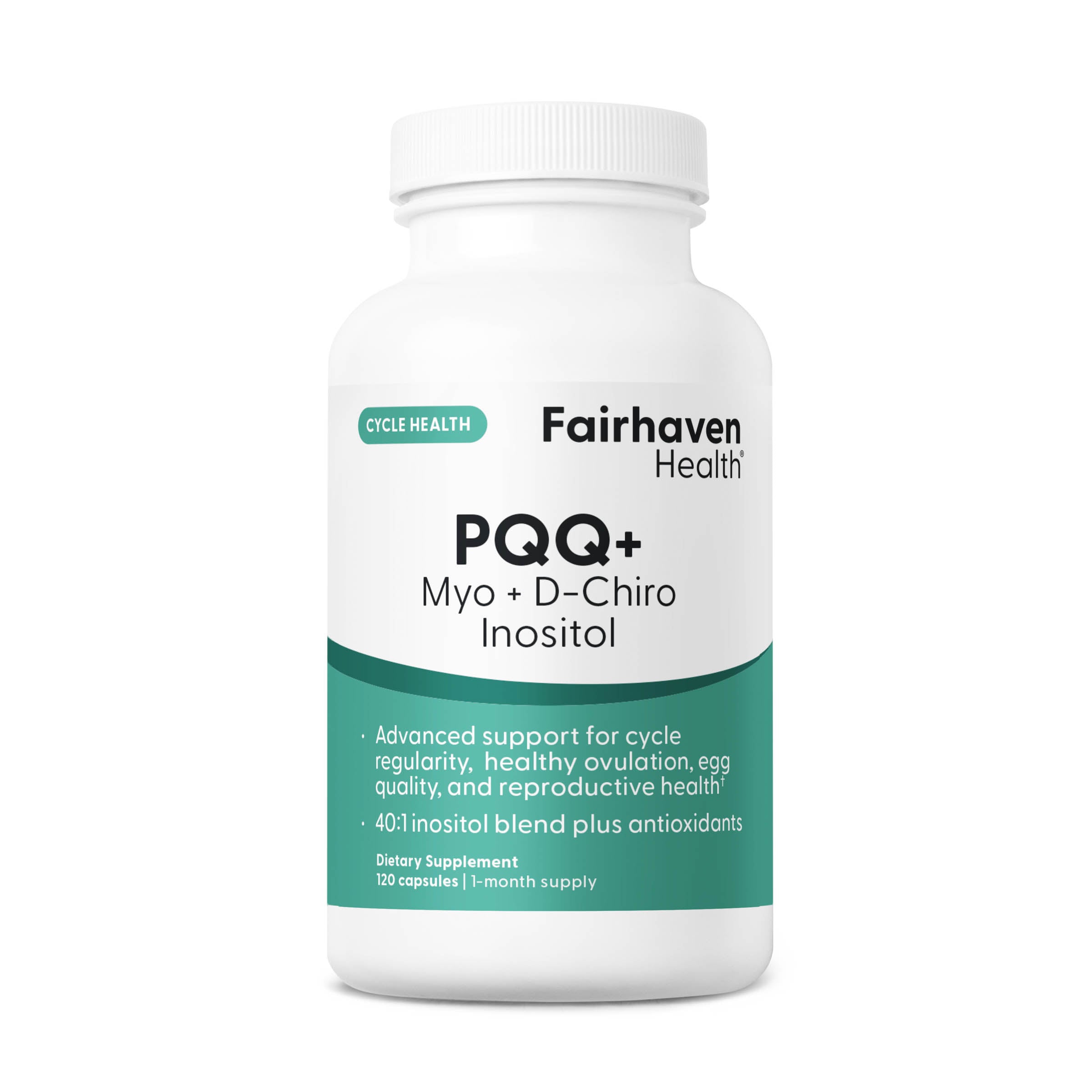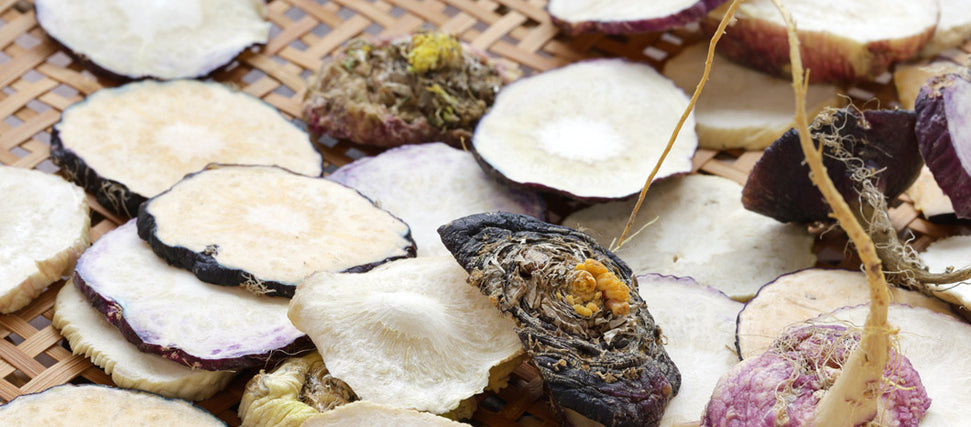By Chris D. Meletis, N.D.
If you’re trying to get pregnant, you may want to take a cue from the people of Peru. For over a thousand years, the perennial plant Maca (Lepidium meyenii) has been grown high above sea level in the Andes mountains of Peru. The root of the Maca plant is so nutrient-dense that it has earned a reputation as a super food, and Maca root is used throughout the world as way to enhance the nutrient content of the diet. It is also known as an adaptogen, in that it helps the body adapt to stress. And, Peruvians have long known that Maca is helpful for fertility, which is now being validated with scientific research.
Maca Root for Men’s Fertility
A number of scientific studies support the traditional use of Maca for male fertility. Many of these are in animals. But there are several human studies showing Maca’s possible benefits. Specifically, Maca has supported healthy libido and sexual desire and improved sperm health. For example, in a double‐blind, placebo‐controlled, randomized trial, healthy adult men ages 21 to 56 were given either placebo or Maca at doses of 1.5 g/day or 3.0 g/day for 12 weeks.1 The men experienced improved sexual desire.
A review of the medical literature included five studies (three randomized clinical trials and two uncontrolled observational studies).2 In one of the randomized clinical trials, Maca improved sperm motility in infertile men. In the other two randomized clinical trials, Maca supported semen quality in healthy men. In the two uncontrolled studies, Maca supported healthy semen quality. The reviewers called for more rigorous studies to confirm Maca’s beneficial effects.
Maca may be more effective when it’s given for a longer period. One study found that nine healthy men ages 24 to 44 years old who took maca for 16 weeks had increased semen volume, sperm count per ejaculum, motile sperm count, and sperm motility.3 In this study, there was a statistically significant rise of sperm concentration by 35%, total sperm count by 84%, and count of motile sperm by 109%. In a 12-week study, there were still improvements after taking Maca, but not as dramatic as in the 16-week trial.4
Most of the research—at least in men—has shown that Maca’s benefits are not caused by a change in reproductive hormone levels.5 It doesn’t appear to raise testosterone or other hormones in men.1,5
Research from at least 23 animal studies with as many as 60 animals in one study confirm Maca’s benefits.6 In animal studies, Maca improved male sexual performance and enhanced spermatogenesis (the production of mature sperm).7-9 In two studies, it also protected mouse sperm after exposure to a pesticide and from the harsh conditions at high altitude.10,11
Maca for Female Fertility
Some—but not all12—studies suggest Maca supports healthy levels of fertility hormones. In one study it raised levels of estrogen and lowered levels of follicle-stimulating hormone (FSH).13 Lower levels of FSH are linked to a greater chance of pregnancy. In another study Maca increased levels of estrogen, FSH, and progesterone.14 These studies were in perimenopausal women, and Maca was able to decrease common complaints in this age group including hot flashes. It also led to feelings of well-being and happiness.
Maca may also stimulate a healthy sexual desire. In another study of mostly female participants who were on selective-serotonin reuptake inhibitor (SSRI) medication for depression, Maca supplements restored the subjects’ libido.6
Evidence indicates that Maca is the most effective in supporting healthy fertility when it’s combined with other fertility supplements. In one study of women with menstrual disorders, 103 women were given a combination of Vitex agnus-castus (Chaste Tree), Maca extract, and active folate.15 Another group of 86 women were given the Maca-Vitex-folate supplement with a capsule containing vitamins, minerals, oligo-elements plus DHA and EPA omega-3 fatty acids. The women were given the supplements for six months or until they became pregnant. A successful pregnancy rate of 37% occurred in both groups. The number of women who were ovulating increased from 10% prior to supplementation to 42.9% by the study’s conclusion. After supplementation with the Maca, Vitex, and active folate, the number of women with polycystic ovaries declined from 163 to 118. The researchers concluded that the Maca blend, “regulates the menstrual cycle, stimulates ovulation and increases the likelihood of getting pregnant.”
The Colors of Maca, Raw vs. Gelatinized, and The Importance of Choosing Organic Maca
Maca comes in three colors: yellow, red and black. The different colors have similar benefits, but yellow maca is believed to act more gently than red and black maca and is believed to be safe for long term use. As a result, yellow maca tends to be a popular form of Maca in supplements.
Another question that often arises when selecting a Maca supplement is: should I choose raw or gelatinized? Raw Maca is exactly as it sounds – not cooked or heated at all. This preserves all of the nutrients in the root. On the other hand, gelatinized Maca is heated to break down the starches in the root to make digestion easier, but some nutrients are lost in the process. In most cases, raw is probably the preferable form as all nutrients are retained, but if after trying raw Maca you find it difficult to digest, you might search for a gelatinized product.
Due to its increased popularity, Maca is now grown in other locations in addition to the Andes, including China, where crops may be sprayed with pesticides. Pesticides are linked to decreased fertility. That’s why it’s important to make sure you choose an organic Maca product. And, as previously mentioned, Maca pairs well with other herbal ingredients for fertility, like Vitex, and menopause, like Black Cohosh.
Dr. Chris Meletis
 Dr. Chris Meletis is an educator, international author and lecturer. His personal mission is “Changing World’s Health One Person at a Time.” Dr Meletis has authored 18 books and over 200 national scientific articles in journals including Natural Health, Alternative and Complementary Therapies, Townsend Letter for Doctors and Patients, Life Extension, Natural Pharmacy, and PubMed.gov articles.
Dr. Chris Meletis is an educator, international author and lecturer. His personal mission is “Changing World’s Health One Person at a Time.” Dr Meletis has authored 18 books and over 200 national scientific articles in journals including Natural Health, Alternative and Complementary Therapies, Townsend Letter for Doctors and Patients, Life Extension, Natural Pharmacy, and PubMed.gov articles.
Dr. Meletis served as Dean of Naturopathic Medicine and Chief Medical Officer for 7 years for the National College of Naturopathic Medicine (now the National University of Natural Medicine). He was awarded the 2003 Physician of the Year by the American Association of Naturopathic Physician of the Year by the American Association of Naturopathic Physicians. He has a deep passion for helping the underprivileged and spearheaded the creation of 16 free natural medicine healthcare clinics in the Portland metropolitan area of Oregon.
References:
- Gonzales GF, Córdova A, Vega K, et al. Effect of Lepidium meyenii (MACA) on sexual desire and its absent relationship with serum testosterone levels in adult healthy men. Andrologia. 2002;34(6):367-372.
- Lee MS, Lee HW, You S, Ha KT. The use of maca (Lepidium meyenii) to improve semen quality: A systematic review. Maturitas. 2016;92:64-69.
- Gonzales GF, Cordova A, Gonzales C, Chung A, Vega K, Villena A. Lepidium meyenii (Maca) improved semen parameters in adult men. Asian J Androl. 2001;3(4):301-303.
- Melnikovova I, Fait T, Kolarova M, Fernandez EC, Milella L. Effect of Lepidium meyenii Walp. on Semen Parameters and Serum Hormone Levels in Healthy Adult Men: A Double-Blind, Randomized, Placebo-Controlled Pilot Study. Evid Based Complement Alternat Med. 2015;2015:324369.
- Gonzales GF, Córdova A, Vega K, Chung A, Villena A, Góñez C. Effect of Lepidium meyenii (Maca), a root with aphrodisiac and fertility-enhancing properties, on serum reproductive hormone levels in adult healthy men. J Endocrinol. 2003;176(1):163-168.
- Dording CM, Fisher L, Papakostas G, et al. A double-blind, randomized, pilot dose-finding study of maca root (L. meyenii) for the management of SSRI-induced sexual dysfunction. CNS Neurosci Ther. 2008;14(3):182-191.
- Cicero AF, Bandieri E, Arletti R. Lepidium meyenii Walp. improves sexual behaviour in male rats independently from its action on spontaneous locomotor activity. J Ethnopharmacol. 2001;75(2-3):225-229.
- Zheng BL, He K, Kim CH, et al. Effect of a lipidic extract from lepidium meyenii on sexual behavior in mice and rats. Urology. 2000;55(4):598-602.
- Gonzales GF, Ruiz A, Gonzales C, Villegas L, Cordova A. Effect of Lepidium meyenii (maca) roots on spermatogenesis of male rats. Asian J Androl. 2001;3(3):231-233.
- Bustos-Obregon E, Yucra S, Gonzales GF. Lepidium meyenii (Maca) reduces spermatogenic damage induced by a single dose of malathion in mice. Asian J Androl. 2005;7(1):71-76.
- Gonzales GF, Gasco M, Córdova A, Chung A, Rubio J, Villegas L. Effect of Lepidium meyenii (Maca) on spermatogenesis in male rats acutely exposed to high altitude (4340 m). J Endocrinol. 2004;180(1):87-95.
- Stojanovska L, Law C, Lai B, et al. Maca reduces blood pressure and depression, in a pilot study in postmenopausal women. Climacteric. 2015;18(1):69-78.
- Meissner HO, Mscisz A, Reich-Bilinska H, et al. Hormone-Balancing Effect of Pre-Gelatinized Organic Maca (Lepidium peruvianum Chacon): (II) Physiological and Symptomatic Responses of Early-Postmenopausal Women to Standardized doses of Maca in Double Blind, Randomized, Placebo-Controlled, Multi-Centre Clinical Study. Int J Biomed Sci. 2006;2(4):360-374.
- Meissner HO, Reich-Bilinska H, Mscisz A, Kedzia B. Therapeutic Effects of Pre-Gelatinized Maca (Lepidium Peruvianum Chacon) used as a Non-Hormonal Alternative to HRT in Perimenopausal Women - Clinical Pilot Study. Int J Biomed Sci. 2006;2(2):143-159.
- Antoine E, Chirila S, Teodorescu C. A Patented Blend Consisting of a Combination of Vitex agnus-castus Extract, Lepidium meyenii (Maca) Extract and Active Folate, a Nutritional Supplement for Improving Fertility in Women. Maedica (Buchar). 2019;14(3):274-279.







